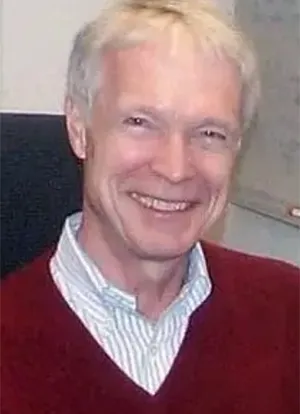Machine Learning Pioneer John Hopfield ’54, H’92 Wins Nobel Prize in Physics

Hopfield and computer scientist Geoffrey Hinton share the award for their decadeslong, trailblazing research that formed the building blocks of artificial intelligence.
John Hopfield ’54, H’92, a pioneer in machine learning and central figure in the creation of modern-day artificial intelligence, has been awarded the Nobel Prize in Physics.
Hopfield, an emeritus professor at Princeton University, shares the honor with British Canadian computer scientist Geoffrey E. Hinton. The pair received the honor on Tuesday for their decadeslong, trailblazing research that formed the building blocks of artificial intelligence.
Since the 1980s, Hopfield and Hinton have deployed tools from physics to form the foundations of what is known as “machine learning,” in which computers are fed masses of data to learn an array of tasks — from diagnosing diseases to knowing people’s favorite streaming shows, notes NBC News.
Their research “formed the building blocks of machine learning that can aid humans in making faster and more reliable decisions,” Ellen Moons, chair of the Nobel Committee for Physics, said at a news conference to announce the award.
The use of this technology has “become part of our daily lives, for instance in facial recognition and language translation,” Moons added, while warning that AI’s “rapid development has also raised concerns about our future.”
Hopfield becomes the sixth Swarthmore alumnus to win a Nobel Prize. Previously, he received the Franklin Institute’s Benjamin Franklin Medal in Physics, one of science’s most prestigious honors. At Swarthmore, he graduated with Highest Honors in physics, and in 1992 received an honorary Doctor of Science degree.
Throughout the course of his extraordinary life and career, Hopfield has been driven by a simple question: How does this work?
A 2019 profile on Hopfield in the Bulletin shed light on his experience at Swarthmore. He found inspiration at the weekly, mandatory Collection, where he heard such speakers as the ACLU’s Roger Nash Baldwin and Socialist Party presidential candidate Norman Thomas. These assemblies broadened his outlook on moral, political, and economic issues, and solidified his belief that our complex world could be explained.
“My scientific life has always been about finding a problem to work on,” Hopfield said.



